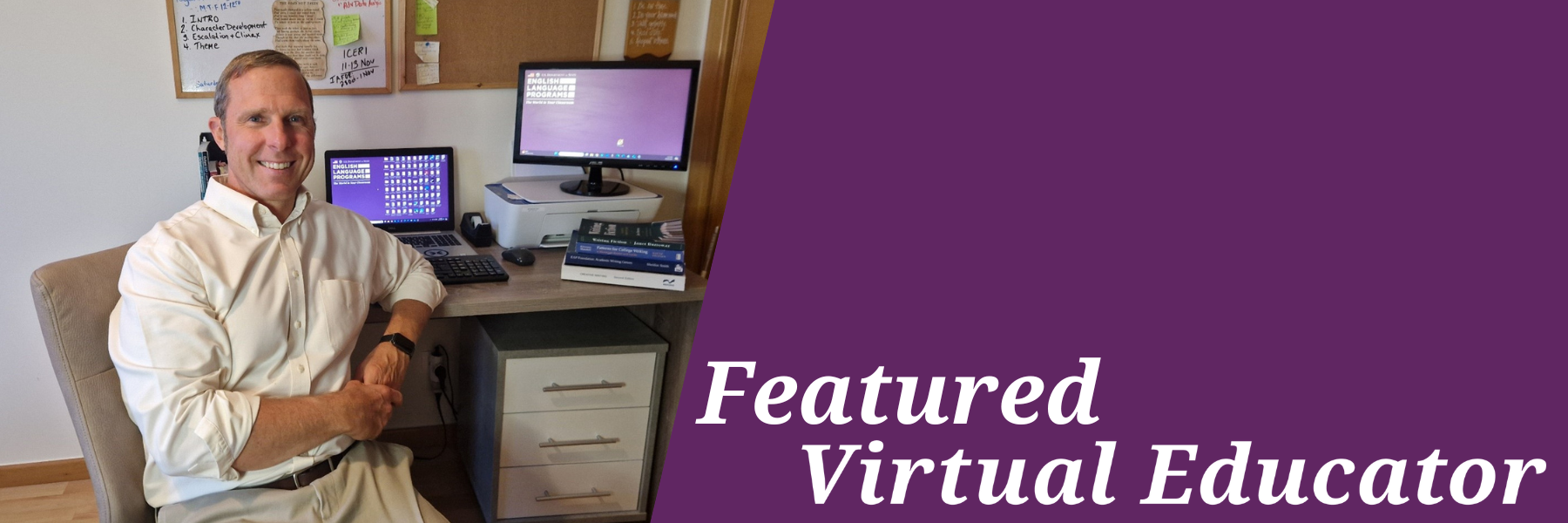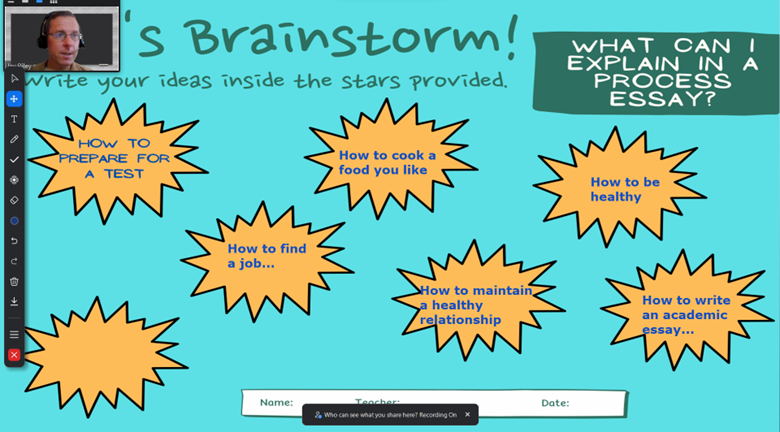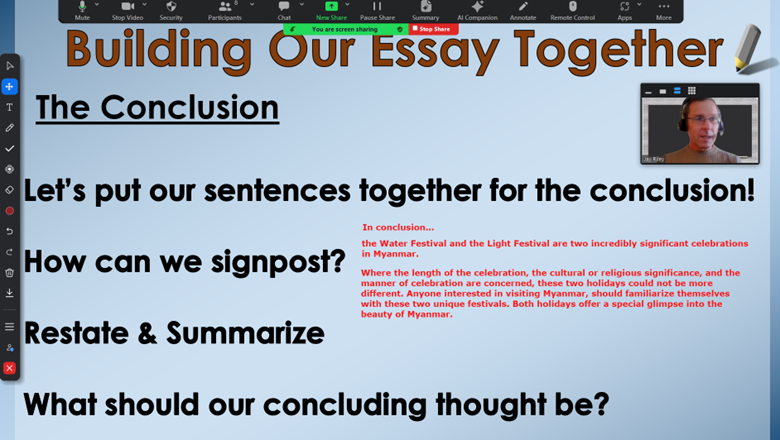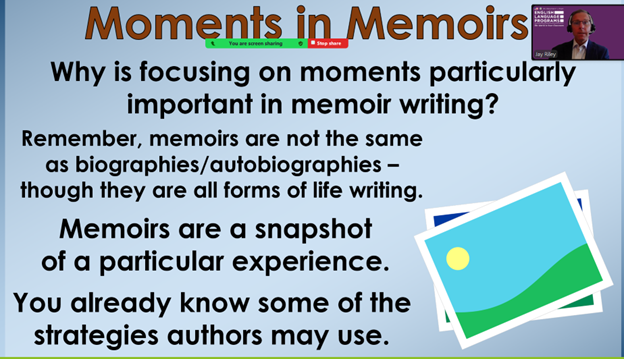A Journey of Professional Growth
James “Jay” Riley began his journey as a Virtual English Language Educator with a project in Vietnam, where his students were business professionals wanting to improve their language skills for career advancement. Riley structured the course around practical language applications, focusing on email correspondence, business meetings, and presentations in English. “Teaching English for the workplace in Vietnam allowed me to hone my skills in creating tailored, context-specific courses,” Riley explained. This experience proved to be invaluable in preparing him for more specialized work, which arrived when he was offered a second Virtual Educator project in Burma (Myanmar), where academic writing and creative instruction took center stage. Riley relied on his ability to adapt his teaching to the needs of his students, both in terms of content and connectivity.
Academic Writing and Personal Expression
In Burma, Riley designed and delivered virtual writing courses to university students, many of whom had limited previous experience in formal education. The first course focused on basic English for Academic Purposes (EAP), covering essential rhetorical features of an academic essay. However, as his students expressed a desire for more in-depth instruction, Riley expanded the curriculum. “We created an Advanced Academic Writing course that explored genres like cause-and-effect and problem-solution essays,” Riley recalled.
He later introduced a creative writing course and was impressed by the creativity students brought to genres such as memoir and poetry writing. “It’s incredible to see them express themselves in ways they hadn’t before,” Riley said, reflecting on the positive impact of fostering artistic expression in difficult circumstances. Throughout the project, many students chose to use on-screen avatars to protect their identity and worked through additional connectivity issues such as regular power cuts. This expansion of the curriculum in a challenging learning environment demonstrated not only his students’ desire to learn but also Riley’s commitment to meeting their evolving educational needs.
Navigating Virtual Education with Creative Problem-Solving
Riley’s work with students in Burma required a balance of educational expertise and creative problem-solving. As virtual learning comes with its own set of challenges, particularly in regions with technological constraints, Riley incorporated progressive approaches to keep students engaged. One of the standout teaching strategies was his use of AI tools to enhance academic writing. “When I noticed students using ChatGPT for assignments, I saw it as an opportunity to teach them prompt engineering,” Riley explained. By guiding them in crafting precise prompts and evaluating AI-generated outputs, Riley encouraged his students to take control of their learning while mastering essential digital literacy skills.
Additionally, he integrated fun interactive games like Blooket, a game-based learning platform, into his lessons for quick, competitive reviews of writing techniques. “My students can’t get enough of it,” Riley shared. “It’s become a highlight of our classes and helps them internalize academic concepts while having fun.” Through these strategies, Riley has made virtual education not just accessible but highly engaging for his students, ensuring their continued interest in learning despite external challenges.
Building Community Through Cultural Exchange
I do my best to create an environment where my students can embrace the idea that our differences can actually bind us together and make us stronger.
Cultural exchange plays a vital role in the Virtual Educator Program, and Riley has found this aspect deeply enriching. His students in Burma, from diverse ethnic backgrounds, shared personal stories that have given him a broader understanding of their culture. “I’ve learned so much from my students,” Riley said. “Their experiences add a dimension to my teaching that textbooks simply can’t offer.” In return, Riley shared aspects of U.S. culture with his students. For instance, he incorporated discussions of American holidays, values, and traditions into his writing prompts, encouraging students to explore the differences and similarities between their cultures. “I believe that despite our differences, we can use our unique perspectives to grow stronger together,” he explained. This philosophy has been the foundation of his virtual classroom, where diverse viewpoints are celebrated, and students are encouraged to bring their own cultural knowledge into discussions. These exchanges create a rich learning environment that goes beyond language skills, fostering mutual respect and understanding.
A Platform for Professional Development and Student Success
For Riley, the Virtual Educator Program has offered not only a rewarding teaching experience but also significant professional development. As a full-time caregiver for his mother, he found his options for professional growth were limited. The flexibility of virtual teaching has allowed him to continue advancing his career from home. “This project has been a lifeline,” he reflects. “I’ve had the chance to develop courses, collect student feedback, and continually refine my teaching methods.”
Riley’s contributions to the program have been recognized by the U.S. Department of State, which honored him with the Virtual English Language Educator Impact Award in the spring of 2024. Although he insists that he humbly shares the credit along with his students, the award highlights Riley’s dedication to enhancing education in remote and underserved regions. His commitment extends beyond the virtual classroom as well. During these projects, he spent extra time assisting students with application essays and recommendation letters, helping them achieve their academic and professional goals. “One of my students was recently accepted into a program to study medicine,” Riley shared. “His goal is to give back to his community by providing medical services in areas impacted by political turmoil. Seeing my students achieve things I could never do myself is the greatest reward.”
Becoming a Virtual Educator: An Opportunity to Make a Difference
Jay Riley’s experiences in Vietnam and Burma demonstrate the meaningful impact Virtual Educators can have on students’ lives, even from a great distance. The Virtual English Language Educator Program offers TESOL professionals an opportunity to develop their skills, engage in meaningful cultural exchange, and contribute to communities in need of quality English language education.
“If you’re considering joining the program, I highly encourage you to do it,” Riley urges. “It’s one of the most rewarding and growth-filled experiences I’ve had as a teacher.”
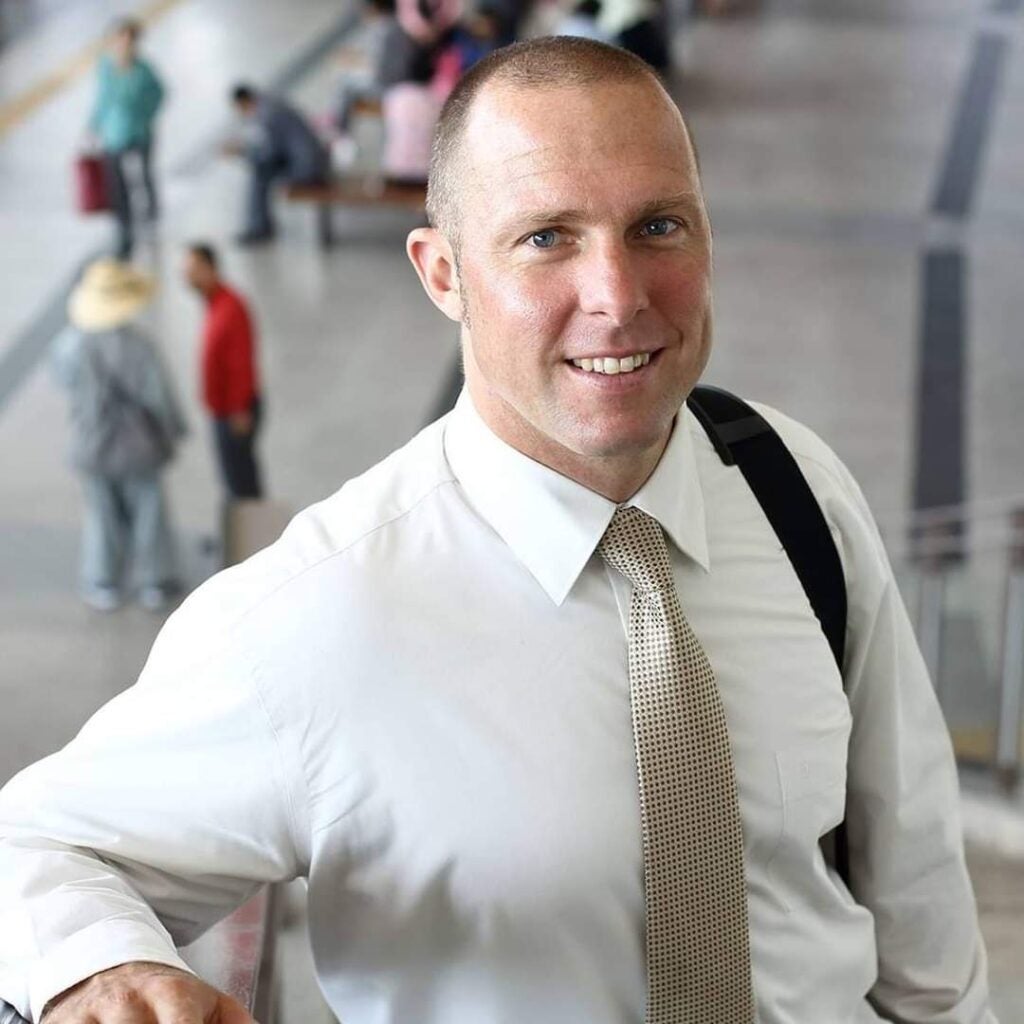
James “Jay” Riley is originally from Long Island, New York, and has been teaching for nearly twenty years. He began his career teaching in urban centers of the USA before moving abroad to pursue a career in TESOL. He holds an MA in TESOL from Hamline University, an Education Specialist degree in Instructional Technology from Fort Hays State University, and a PhD in Cross-Cultural Leadership from the University of the Cumberlands. Jay has taught young learners in America, children and adults in Indonesia, as well as university students in South Korea. His interests include academic writing, cross-cultural communication, peer observation of teaching, and blended learning. He recently completed a Virtual Educator teaching assignment for students who have been displaced in Myanmar.

